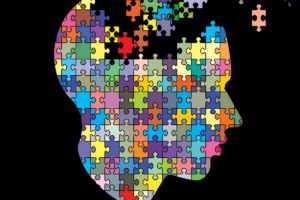New data from a long-term study presented Sunday at a major Alzheimer’s disease conference suggest that a battery of well-known memory, brain-imaging and biological measures could help predict whether an individual without apparent memory problems will develop the disease within six years…
Researchers and drug companies are keenly interested in biological markers of Alzheimer’s that can predict, long before clinical symptoms show up, who may develop the progressive memory disease. In recent years, it has become increasingly evident that Alzheimer’s-related changes in the brain begin at least 10 to 15 years or more before people show signs of detectable memory loss…
The study, called Biocard, followed 189 people from as early as 1995, for an average of eight years. All the individuals began the study without memory problems, but three-quarters had family members who had been diagnosed with Alzheimer’s. Over the years, 60 participants went on to develop either mild cognitive impairment or Alzheimer’s, said Dr. Albert.
Using statistical analysis, the team determined an algorithm of six biomarkers taken together predicted the likelihood that an individual would progress to Alzheimer’s, but further validation of the test on a different sample of people is necessary, said Dr. Albert.
Some 80% of the sample predicted by the biomarker combination to go on to develop abnormal memory problems truly went on to develop them, while 20% would have been classified as a false negative. The algorithm, 75% of the time, correctly predicted who wouldn’t go on to develop memory problems.
The six measures in the algorithm included a genetic assessment of whether an individual had a variant of the ApoE4 gene, two memory tests, the level of a protein called tau found in the cerebrospinal fluid and MRI measurements of two brain regions…”
“A small study could have big implications in the battle against age-related cognitive decline and dementia, according to research announced today at the Alzheimer’s Association International Conference. The study was conducted by researchers at McGill University and Posit Science, and showed—for the first time ever in humans — that a particular type of brain exercise can increase the ongoing production of a brain chemical that is critical in addressing Alzheimer’s disease.
The brain chemical is acetylcholine, a neuromodulator, which the brain naturally produces at the moments when it needs to attend to information, and which is critical to memory and learning. Typically, the production of acetylcholine decreases with aging, and is more dramatically decreased in people with age-related cognitive decline, pre-dementia, and dementia.
The most commonly-used drugs to combat early stage Alzheimer’s are cholinesterase inhibitors (e.g., Aricept, Exelon, Razadyne), which decrease the rate at which the brain breaks down acetylcholine, leading to higher levels of acetylcholine in the brain. This strategy has been shown to mildly slow the decline associated with Alzheimer’s disease, but typically the benefits from this strategy are not sustainable over time…




